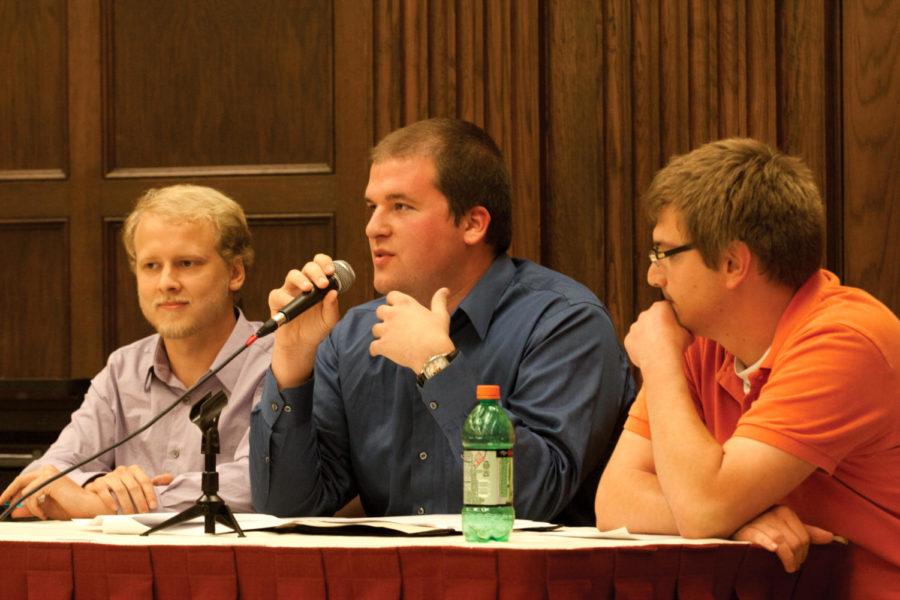ISU Ambassadors debate top election issues
October 22, 2012
The ISU Ambassadors hosted their own debate at the Memorial Union prior to the start of the U.S. presidential debate on Monday night.
The debate involved the College Democrats, College Republicans and independent parties debating over foreign policy, health care and education.
The different parties touched on foreign policy and U.S. humanitarian efforts across the globe.
“Israel is the only nation in the Middle East with WMDs, [weapons of mass destruction]; we need to look at how much money we’re giving them,” said Luke Elzinga, senior in advertising and independent representative. “We also need to look at human rights first, then political strategies.”
The Democrats discussed humanitarian aid as a priority, and military aid to foreign countries as not being the main option.
Spencer Hughes, junior in speech communication and Democratic representative, highlighted the president’s Emergency Plan For AIDS Relief program as a humanitarian effort that should be supported more, especially for areas with higher numbers of AIDS cases, such as Africa.
The Republicans supported giving humanitarian aid where it was most needed but pointed out financial problems the government faces when it comes to funding.
“We don’t have as much money as we have had in the past, so that limits us a little,” said Zach French, junior in history and Republican representative.
Republicans discussed the need to work with other countries but talked about how the United States sometimes had to work independently. They said more action during U.N. missions should be taken by other U.N. member states.
“Under our current system, I think the [Affordable Health Care for America Act] has made health care more accessible for now, but down the road we need to be looking at something else,” Elzinga said.
Democrats and Republi-cans pointed out health care was a benefit.
Republicans said it was a benefit of a good job which is used to attract better employees to a company, while some Democrats thought it should be taken care of as a universal benefit.
French stated the health care system had to be restructured, and they needed to allow for competition between insurance and health care companies to drive the price down. He stated taxes should be cut and have loop holes and tax breaks closed to generate revenue for Medicare and Medicaid.
“There has to be a steady stream of revenue,” Hughes said. “Romney has said there will be a 20 percent tax cut across the board for everybody; the math doesn’t add up then. … Let [George W. Bush’s] tax cuts expire, and this will generate more revenue for health care.”
The education issue generated similar emphasis especially on education for the future of the United States.
“We need to start investing more in our science and math; education is one of the most important parts of our government,” Elzinga said. “We have to increase our children’s interest in something they love; then I think education of our children will greatly improve.”







